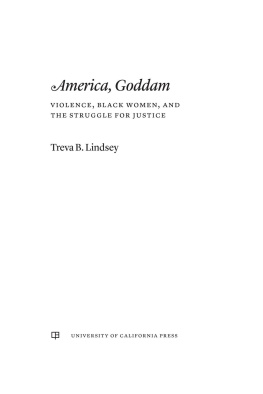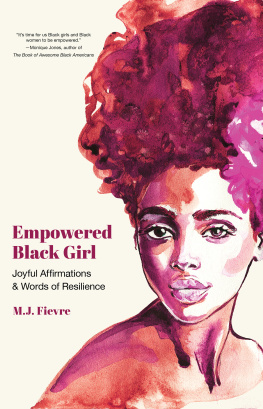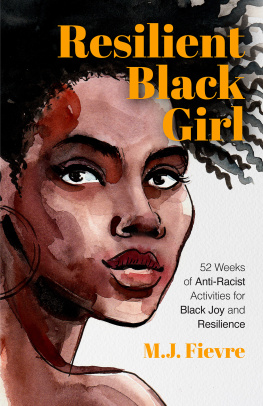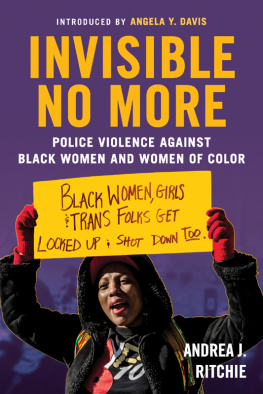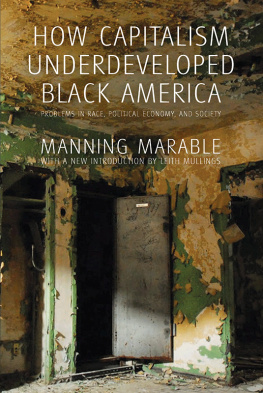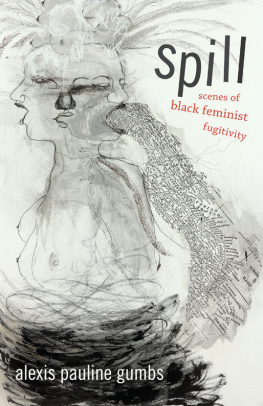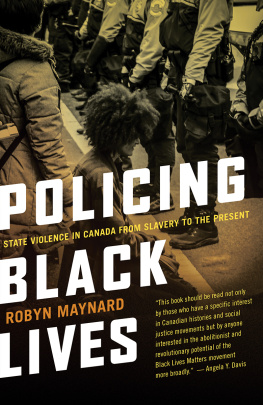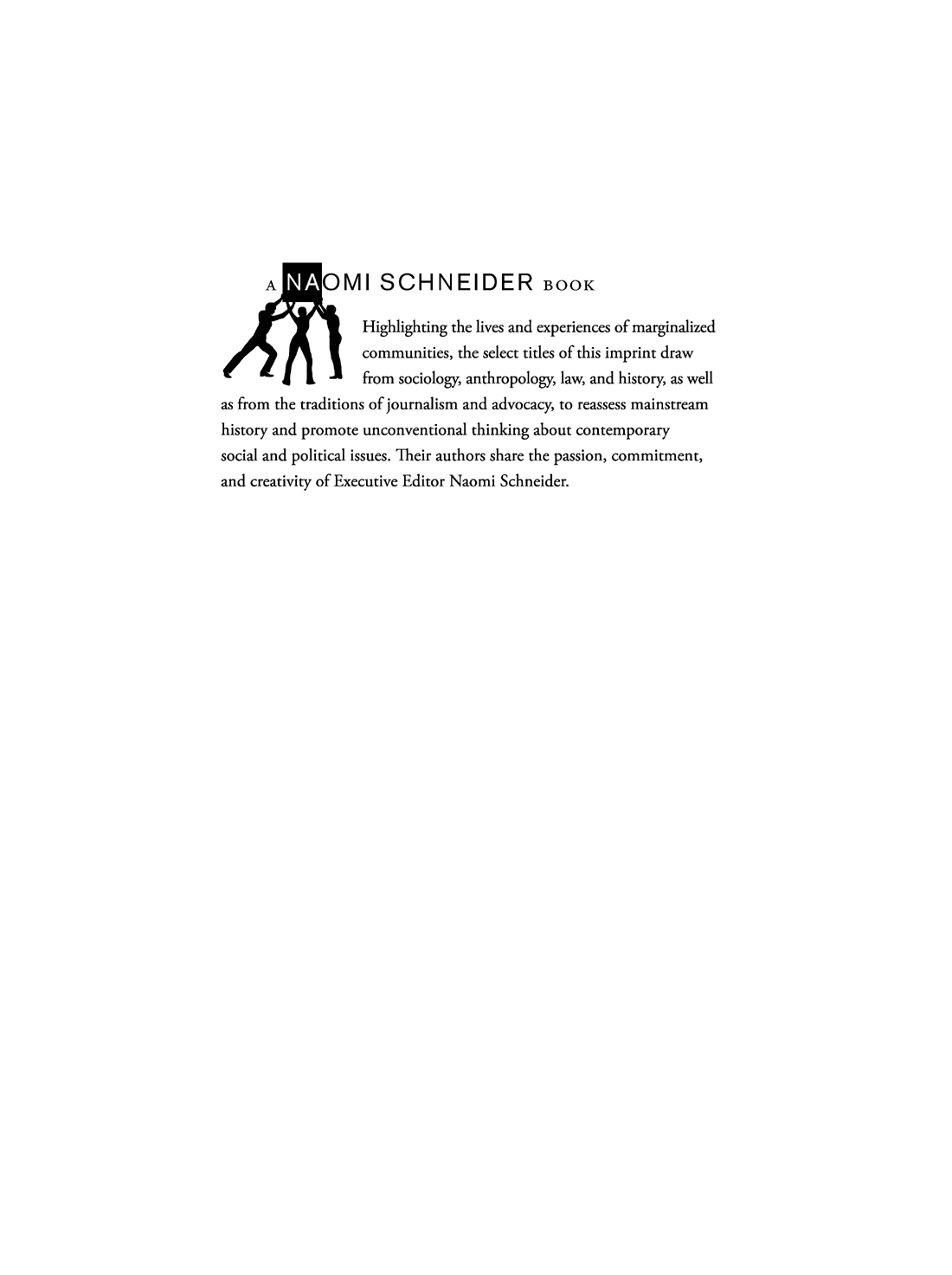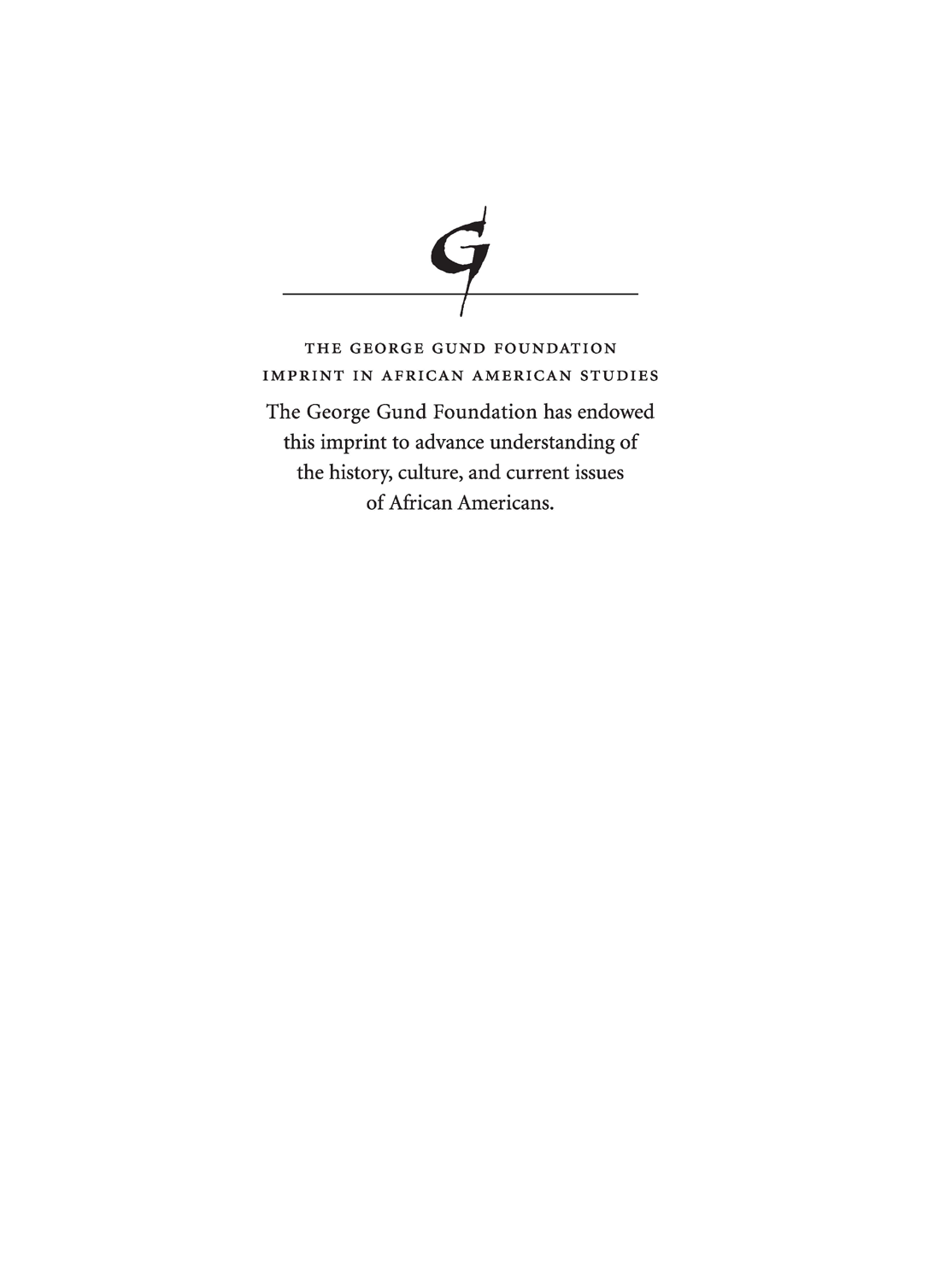America, Goddam is the book we have been waiting for. A trenchant examination of the history and consequence of the particular overlap of anti-Blackness and misogynymisogynoirthat has worked to undermine the life chances of all working-class and poor Black women. Unraveling easy narratives about progress and change in American history, America, Goddam s focus on twenty-first-century iterations of the oppression and exploitation of Black women highlights both continuity and change. Treva Lindsey provides the historical and analytical tools necessary to make sense of the endless media and scholastic narratives of abuse and neglect in the coverage of Black womens stories. With extraordinary insight and elemental passion, America, Goddam is a critical contribution to the evolving cannon of Black feminist texts and scholarship.
KEEANGA-YAMAHTTA TAYLOR, editor of How We Get Free: Black Feminism and the Combahee River Collective
Written with insight, care, and verve, America, Goddam provides piercing insight into present-day movements including #BlackLives Matter, #SayHer Name, and #MeToo. Lindseys voice orients us to the books concerns through the lens of her own life experiences, making clear that America, Goddam achieves its effect through a brilliant and unbounded sense of how we can and should arrive at understandings about the origins, forces, and possibilities for resisting violence.
MARTHA S. JONES, author of Vanguard: How Black Women Broke Barriers, Won the Vote, and Insisted on Equality for All
The publisher and the University of California Press Foundation gratefully acknowledge the generous support of the George Gund Foundation Imprint in African American Studies.
America, Goddam
VIOLENCE, BLACK WOMEN, AND THE STRUGGLE FOR JUSTICE
Treva B. Lindsey

UNIVERSITY OF CALIFORNIA PRESS
University of California Press
Oakland, California
2022 by Treva B. Lindsey
Library of Congress Cataloging-in-Publication Data
Names: Lindsey, Treva B., 1983 author.
Title: America, goddam : violence, black women, and the struggle for justice / Treva B. Lindsey.
Description: Oakland, California : University of California Press, [2022] | Includes bibliographical references and index.
Identifiers: LCCN 2021029665 (print) | LCCN 2021029666 (ebook) | ISBN 9780520384491 (cloth) | ISBN 9780520384507 (epub)
Subjects: LCSH : Women, BlackViolence againstUnited States. | Women, BlackCivil rightsUnited States. | Social justiceUnited States. | Anti-racismUnited States.
Classification: LCC HV 6250.4. W 65 L 565 2022 (print) | LCC HV 6250.4. W 65 (ebook) | DDC 362.88082dc23
LC record available at https://lccn.loc.gov/2021029665
LC ebook record available at https://lccn.loc.gov/2021029666
Manufactured in the United States of America
31 30 29 28 27 26 25 24 23 22
10 9 8 7 6 5 4 3 2 1
For my father, the late ANTHONY WAYNE LINDSEY
And my mother, TREVA ANN STREETER LINDSEY
and
Black girls and women everywhere
Contents
Introduction
Goddam, Goddam, Goddam
As I finished this book, the trial of Derek Chauvin, the Minneapolis police officer who killed George Floyd, a forty-five-year-old Black man on May 25, 2020, by pressing his knee into Floyds neck for almost ten minutes had just begun. On the second day of the trial, in March 2021, the prosecution called eighteen-year-old Darnella Frazier and her nine-year-old cousinalso a Black girl to testify about what they witnessed on that fateful day. My heart broke as I listened to Darnella, who was seventeen at the time she filmed Chauvin killing George. Her video went viral and sparked protests worldwide. This teenage Black girl cried as she testified and stated that she stayed up nights apologizing to George for not doing more.shapes us. All I could say as I witnessed their witnessing was Goddam.
On the evening of Saturday, March 21, 1964, legendary singer, songwriter, arranger, musician, and civil rights activist Nina Simone took the stage at Carnegie Hall in New York City. She performed and recorded what became the album Nina Simone in Concert over the course of three nonconsecutive nights at the storied venue. At the first show of the three-night engagement, one song reportedly shocked her captive, predominantly white, audience.
It begins like a show tune, spritely and upbeat, but then quickly reveals itself to be fiercely political in its condemnation of racism. The music is almost playful, yet the lyrics indict a nation for its infinite crimes against Black people and convey Simones furor with what she has endured and witnessed: Oh but this whole country is full of lies. Simone implores her audience to feel the weight of what being Black in the U.S. is. Its being chased, arrested and incarcerated, or fearing premature and violent deaths. Mississippi Goddam goes for the U.S.s jugular. Its a callout, a presocial media dragging. The lightheartedness of the music intentionally and carefully belies its unrepentant message about injustice and anti-Black racial violence.
Those who viewed the song as a threat to a white supremacist status quo railed against the profanity of the songs title and lyrics and the possibility that it could further galvanize and intensify support for Black freedom struggles. In the song, Simone mentions only a few states, but what she describes is a long history that stretches into the present. The story she tells in just a few minutes is one of this nations history of violence against Black people. It is woven into the fabric of this nation, one of its most prominent and defining features.
In Simones autobiography, I Put a Spell on You, she talks about the assassination of civil rights activist Medgar Evers in Mississippi on June 12, 1963, as an inspiration for her first protest song.Kenyatta, Reena Denise, and James Van Dykewithout their loved one. He was a prominent figure in the movement, but he was also beloved as a father, husband, and member of a community. How does one put all of that into a three-and-a-half-minute song?
The other catalyst for Simone penning and performing her first protest song was the Sixteenth Street Baptist Church bombing in Birmingham, Alabama. On Sunday, September 15, 1963, four members of the local Ku Klux Klan chapter planted dynamite on the east side of the church. The Sixteenth Street Baptist Church bombing was a gut-wrenching act of terror that shook civil rights activists, allies of Black freedom struggles, and everyday Black folks to their core.
History too often remembers Addie, Denise, Carole, and Cynthia as the Four Little Girls killed by white supremacists. When we talk about the bombing, we dont often say their names. We rarely talk about who they were before that fateful morning of unrepentant white supremacist violence. Denise loved baseball and was a Brownie. She also loved to perform and used her artistic Among these young girlsDenise, Addie, Carole, and Cynthiawas an abundance of talent, laughter, and aspiration. Their lives were so much more than the seconds in which they were killed.
The murders of these girls and the broader attack on this haven within Birminghams Black community combined with Everss assassination, however, compelled Simone to write Mississippi Goddam. Although she conceded that she didnt like protest music because a lot of it was so simple and unimaginative [that] it stripped the dignity away from the people it was trying to celebrate. But the Alabama church bombing, and the murder of Medgar Evers stopped that argument and with Mississippi Goddam, I realized there was no turning back. Mississippi Goddam is a mere glimpse into a violent history in which antiBlack violence is constant and ravenous. This song was her resistancea forthright truth-telling.

